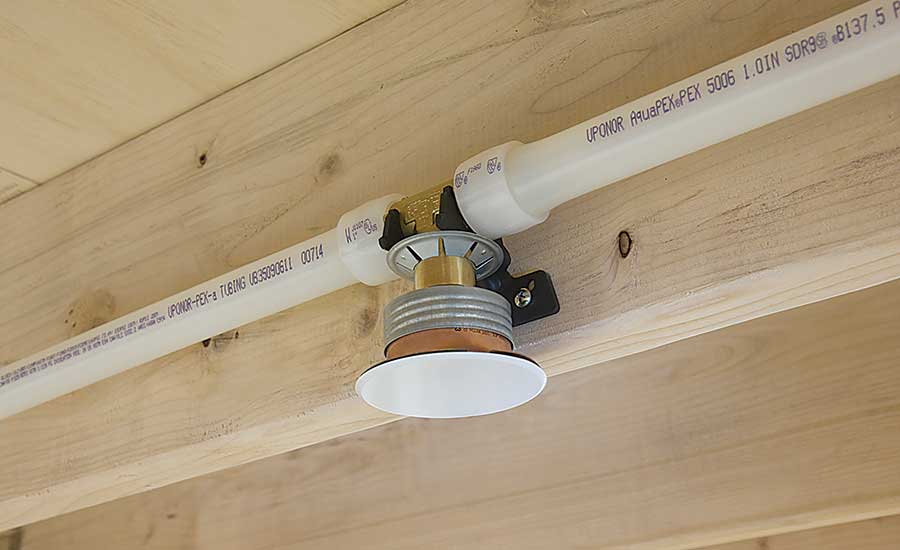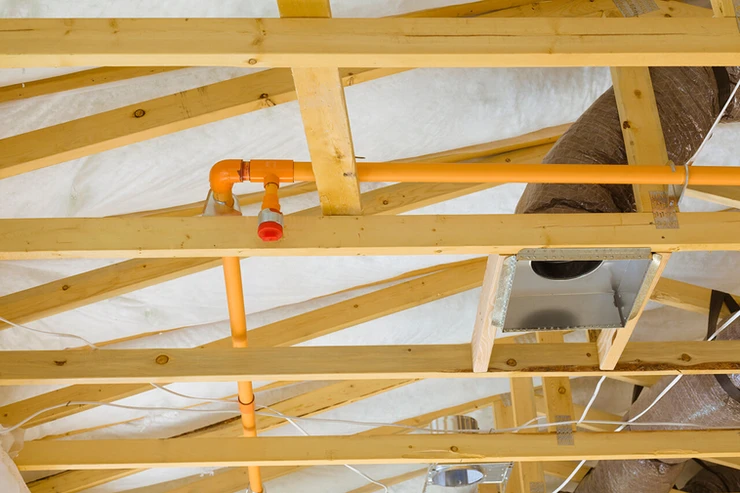Fire safety in residential buildings is essential for protecting lives and property. Fire sprinkler systems, which detect and automatically suppress fires, are a critical component of any comprehensive fire safety plan. But when are these systems required in residential settings? Understanding the regulations, building characteristics, and specific factors that mandate the installation of fire sprinklers can help ensure compliance and enhance safety.
Understanding the Regulatory Requirements
The need for fire sprinklers in residential buildings depends on various local, state, and national regulations. Standards like the National Fire Protection Association (NFPA) 13D and 13R are often referenced in determining requirements for different types of residential properties.
Single-Family Homes and Townhouses: In many regions, new constructions of single-family homes and townhouses are required to have fire sprinkler systems. This requirement is influenced by factors such as building size, height, and occupancy.
Multifamily Dwellings: Apartment complexes and multifamily residential buildings typically require fire sprinkler systems, particularly in common areas and individual units, based on the building’s size and occupancy type.
Building Height
Building height is a significant factor in determining whether fire sprinklers are required. Taller buildings pose greater risks during a fire, as they can be more challenging for occupants to evacuate and for firefighters to access. Generally, buildings that exceed a specific number of stories are mandated to have fire sprinkler systems. The exact height requirement may vary depending on local codes and standards, but the rationale is consistent: higher buildings necessitate more robust fire protection measures.
Building Size
The overall size of a residential building also plays a crucial role in the need for fire sprinklers. Larger buildings with expansive floor areas can allow fires to spread more quickly, increasing the potential for extensive damage and loss of life. Fire sprinkler systems help contain and suppress fires, minimizing the risk to both property and occupants. Regulations often specify a minimum square footage beyond which sprinklers become mandatory, ensuring that larger buildings have the necessary fire protection.
Type of Construction
The materials and methods used in constructing a building influence the requirement for fire sprinklers. For example, buildings made of combustible materials, such as wood, are more likely to require sprinkler systems compared to those constructed with non-combustible materials like concrete or steel. The construction type not only affects the fire risk but also dictates how quickly a fire can spread, making sprinklers essential in buildings with higher vulnerabilities.
Occupancy Type
The occupancy type, or the nature of the building’s use, is another critical factor. Residential buildings designed for vulnerable populations, such as elderly care facilities, student housing, or buildings with high occupancy densities, often have stricter fire sprinkler requirements. The rationale is that these occupants may have more difficulty evacuating in the event of a fire, necessitating additional fire protection measures to ensure their safety.

What Type of Fire Sprinkler System Is Used in Residential Buildings?
In residential buildings, the fire sprinkler systems used are typically designed to be less intrusive while still providing effective fire suppression. The most common types include:
NFPA 13D Systems: These systems are designed for single-family homes and townhouses. They provide a more cost-effective solution, focusing on life safety rather than complete property protection.
NFPA 13R Systems: These are typically installed in low-rise multifamily dwellings, such as apartment buildings, where life safety is the primary concern.
Pre-Action Sprinkler Systems: These systems are used in areas where accidental discharge of water could be highly damaging, such as in high-end residences with valuable furnishings.
Each type of system is designed to meet specific needs, ensuring that the fire protection solution is appropriate for the building’s characteristics and the safety of its occupants.

Benefits of Fire Sprinkler Systems in Residential Buildings
Installing fire sprinklers in residential buildings offers numerous benefits:
Life Safety: Fire sprinklers can significantly reduce the risk of injury or death by controlling or extinguishing fires before they spread.
Property Protection: These systems help minimize property damage by limiting the spread of fire, smoke, and water damage.
Insurance Savings: Many insurance companies offer discounts on premiums for homes and buildings equipped with fire sprinkler systems.
Choosing the Right Fire Sprinkler System
Selecting the appropriate fire sprinkler system for a residential building involves understanding the specific needs and compliance requirements. Blaze Fire Protection provides expert consultation and installation services to ensure your building meets all safety standards.
Conclusion
Fire sprinklers are an indispensable part of fire safety in residential buildings. Understanding when they are required and the factors that influence their installation can help ensure that your property is both compliant with regulations and adequately protected. Whether you’re dealing with a tall building, a large structure, or a facility housing vulnerable occupants, it’s essential to have the right fire sprinkler system in place. Blaze Fire Protection offers expert guidance and installation services to ensure your residential building is fully equipped with the necessary fire safety measures.
Secure Your Residential Building with Expert Fire Sprinkler Installation
Contact Blaze Fire Protection today to schedule a consultation and ensure your residential building complies with all fire safety regulations with our professional fire sprinkler services.





